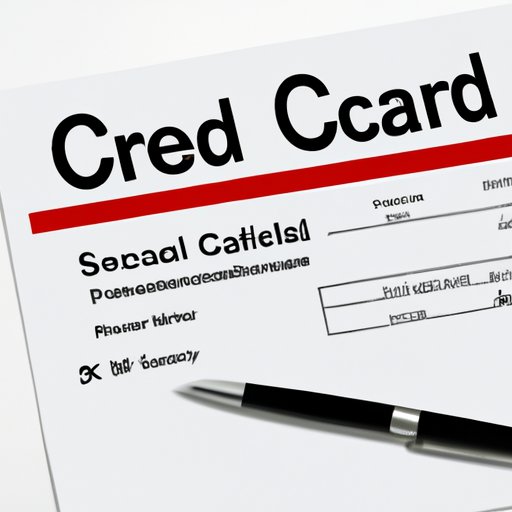
I. Introduction
A good credit score is a valuable asset that can unlock countless financial opportunities. Your credit score is a reflection of your creditworthiness, and it can influence your chances of being approved for a loan, renting an apartment, or even landing a job. In short, a good credit score is essential for anyone who wants to achieve financial stability and freedom. In this article, we’ll explore practical tips and strategies for improving your credit score, whether you’re starting from scratch or dealing with credit challenges.
II. 5 Basic Steps to Obtain a Good Credit Score
Before we dive deeper into credit score improvement strategies, let’s start with the basics. A credit score is a number that ranges from 300 to 850 and reflects your creditworthiness based on your credit history. A high credit score indicates that you have a history of responsible credit use, while a low credit score suggests that you have experienced credit problems in the past.
The first step to improving your credit score is to check your credit reports regularly and dispute any errors you find. This can be done for free once a year at AnnualCreditReport.com. The next step is to make sure that you always make your payments on time, as this is the most important factor affecting your credit score. Additionally, it’s important to keep your credit utilization low by using only a small percentage of your available credit, ideally less than 30%.
To keep your debt balances low, it’s essential to avoid overspending on credit cards and create a monthly budget. You can also consider consolidating your debt with a personal loan or balance transfer credit card.
III. The Power of Credit: 5 Strategies to Build and Boost Your Score
In order to understand how to build your credit score, it’s important to understand how it’s calculated. Your credit score is determined by factors such as payment history, credit utilization, length of credit history, and types of credit used.
One strategy for building your credit score is to have a mix of credit types, such as credit cards, car loans, and student loans. Another strategy is to create a plan for paying off specific debt balances, such as credit card balances with high interest rates, in order to lower your credit utilization and improve your overall credit score.
You can also consider asking for a credit line increase, which can boost your available credit and lower your credit utilization. However, it’s important to avoid opening too many credit accounts at once, which can make you seem risky to lenders.
Finally, some credit score models consider alternative credit sources such as rent payments or utility bills. By ensuring that these payments are made on time, you can help to build your credit score over time.
IV. Starting from Scratch: 5 Tips for Building Credit When You Have None
If you’re just starting to build your credit history, there are several strategies you can use to get started. One option is to become an authorized user on a family member’s credit card, which can help you establish a credit history without taking on financial responsibility right away.
Another option is to obtain a secured credit card, which requires a security deposit but can help you establish a credit limit and credit history. It’s important to use a secured card responsibly by making all payments on time and keeping your balances low.
Ultimately, building credit takes time and patience. It’s important to use credit responsibly and avoid the common pitfalls that can harm your credit score.
V. 5 Common Credit Myths That Could Be Harming Your Score
There are many myths and misconceptions about credit scores that can harm your score if you believe them. For example, some people believe that paying off a credit card balance in full can hurt their score, but in reality, it can help by lowering their credit utilization.
Other common credit myths include the idea that closing a credit card account can help your score (in reality, it can hurt it by lowering your available credit), and the belief that checking your credit report can hurt your score (it won’t, as long as you’re using a legitimate service).
By understanding these myths and debunking them with accurate information, you can avoid the trap of believing misinformation about credit scores.
VI. 5 Mistakes That Could Be Hurting Your Credit Score
There are also several common mistakes that people make that can harm their credit scores. One mistake is applying for too many credit products at once, which can make you seem risky to lenders. Another common mistake is ignoring credit issues and allowing them to go unresolved, which can harm your credit score in the long term.
It’s important to monitor your credit score regularly and address any issues as soon as they arise. By avoiding these common mistakes and managing your credit responsibly, you can maintain a healthy credit score.
VII. Conclusion
A good credit score is an essential ingredient for financial security and freedom. By following the tips and strategies outlined in this article, you can improve your credit score and achieve your financial goals. Remember to check your credit reports regularly, make payments on time, keep your balances low, and avoid common credit score myths and mistakes. By taking these steps, you can enjoy the power of good credit and unlock a world of financial opportunities.
Additional resources for improving your credit score include online credit education websites, credit counseling services, and financial advisors who can help you develop a personalized credit improvement plan.





